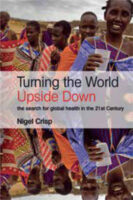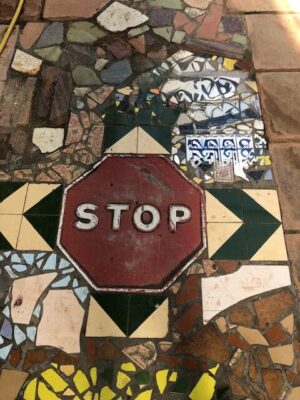Main content

Author: Nigel Crisp
Published by: Taylor & Francis Group, 2010, 209 pages, EURO 24.99
Which message would you expect from a person who ran the world’s biggest health service for five years, the NHS in England? An ode to technological development and established health systems and how the rest of the world can learn from this? The opposite is true here. Nigel Crisp asked by Prime Minister Tony Blair about lessons learnt as former CEO of the NHS – wrote this book: Turning the world upside down. In his own words: ‘There are two simple ideas at the very heart of this book – that rich countries can learn a great deal about health and health services from poorer ones and that combining the learning from rich and poor countries can give us new insight into how to improve health.’
From Wales to Bangladesh
Crisp introduces his book by describing the Jenkins, a Welsh family in the 1930s, of whom half of the children died very young of tuberculosis, whereas the surviving children are now in their 90s. This family tells the story of Western medicine: rapidly improving health and increasing life expectancy. It is against this background that strong health systems were built, science- and hospital-based and run by highly trained professionals. However, we no longer suffer that much from tuberculosis but rather from chronic conditions that may warrant a completely different, community-based type of healthcare.
Then the story moves elsewhere to the Bangladesh Rural Action Committee (BRAC), the largest NGO in the world and an example of a community-based organization. Instead of the top-down, professionalized health system of most wealthy countries, BRAC strives for self-determination and self-help, by dealing not only with health but also with education and other public services.
Unfair trade
Crisp continues his argument by extensively describing the current relationship between the North and the South. The ‘brain drain’ of healthcare workers from South to North is well-known. Another unfair aspect is the export of ideas and technology – and thereby power and superiority – from North to South. Crisp argues that the division between poorer and richer countries is an artificial one, and that we should rather be ‘talking about our shared health issues, and not about development but about co-development’. After all, there is so much we can learn from each other! ‘What if our import-export business was turned upside down, and poorer countries exported their ideas and experience whilst richer countries exported their health workers?’
Does the sun turn around the earth or vice versa? Changing a paradigm
A central theme in Crisp’s book is that Western healthcare in general is designed to serve the professional rather than the patient and is focused primarily on clinical medicine instead of public health. Healthcare workers are highly specialized and organized in powerful medical associations, and the financial system often reinforces this type of expensive healthcare. Once again, what if this system was turned upside down? What if we change our paradigm from doctors being the centre of health to recognizing that patients are actually at the centre? Again, lessons can be learnt from the South. Mainly as a result of limited financial resources and underdeveloped health systems, there are numerous examples of how healthcare can be organized in a way that best serves the needs of the patients. One example of this is the training of clinical officers in several low- and middle-income countries, who are less extensively trained than doctors and therefore less expensive, but ‘who do the job that needs doing as well as doctors would have done – if there had been any.’
Worth reading?
Although this book introduces some challenging and thought-provoking ideas, it is anything but a naïve thought-experiment. Crisp builds his argument by providing a comprehensive context and discussing the effect of poverty, health systems, and capitalism on health. Even though there is now increasing attention for patient-centred healthcare, the idea is still not widely accepted and certainly not regularly implemented. This book provides a broad perspective on this theme and is written with great passion and conviction by someone with authority in the field. Reading it will definitely challenge the way you think about global health (not just the South!) and your own role in it, no matter what that role is.



















































